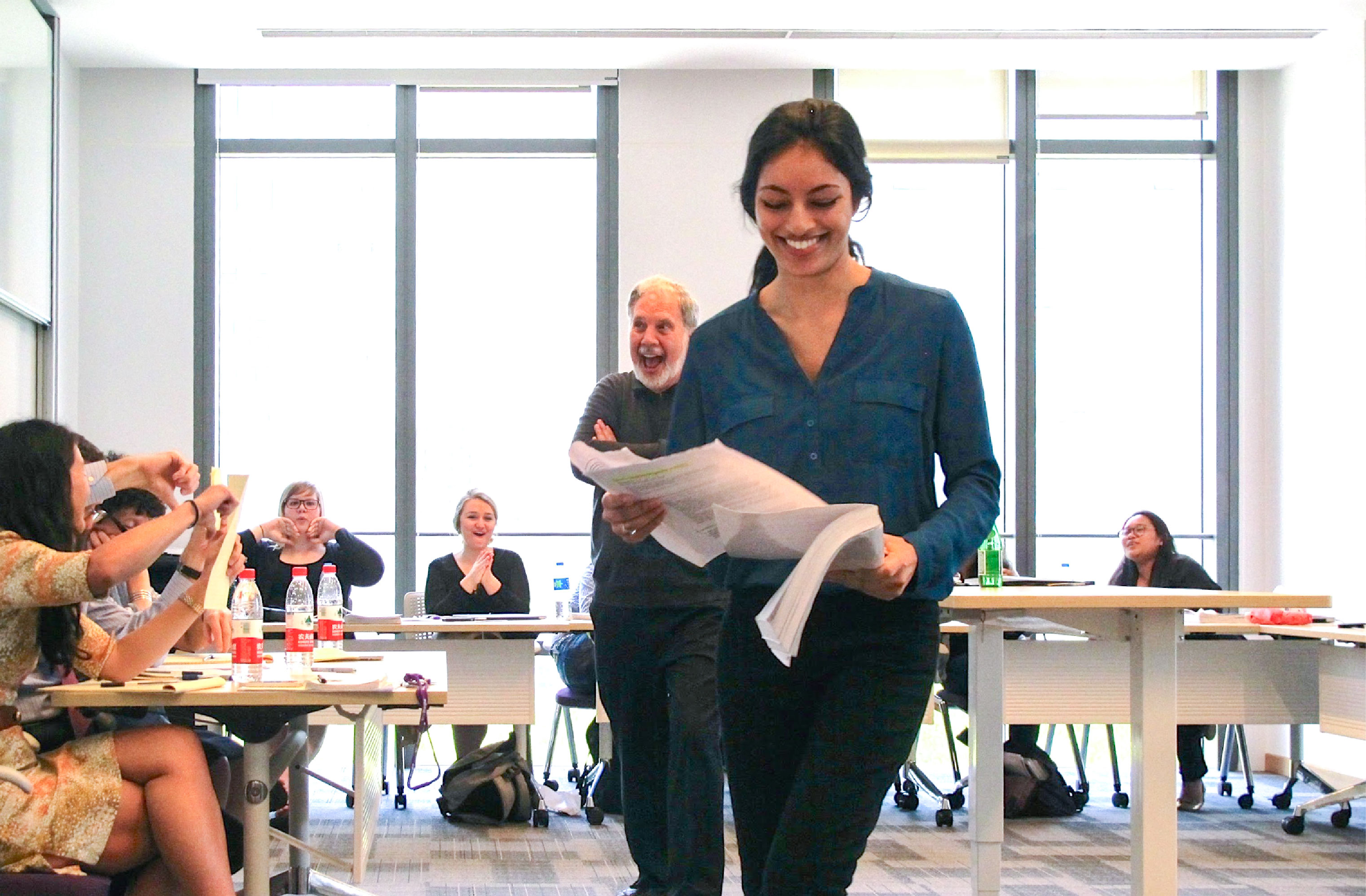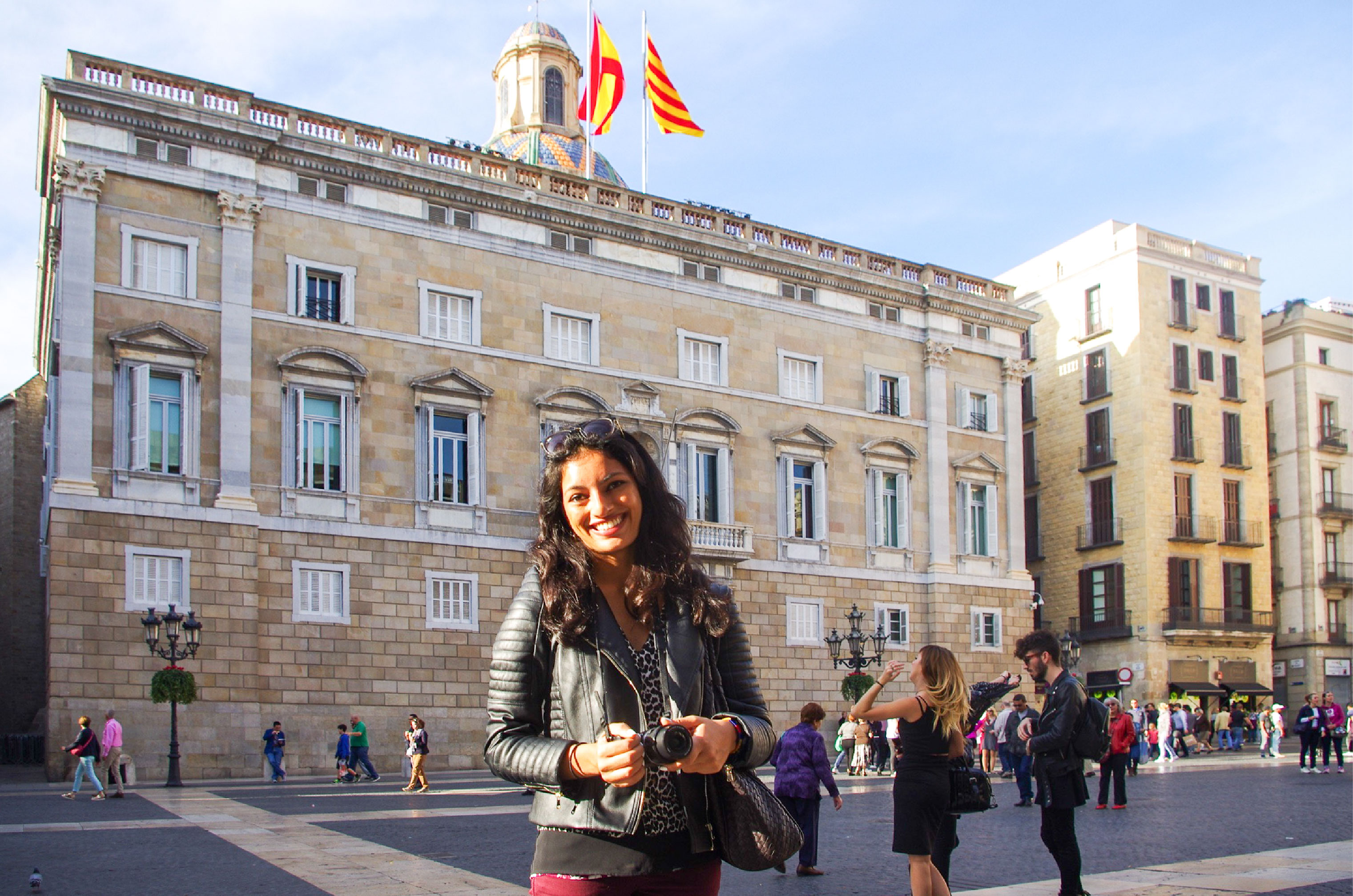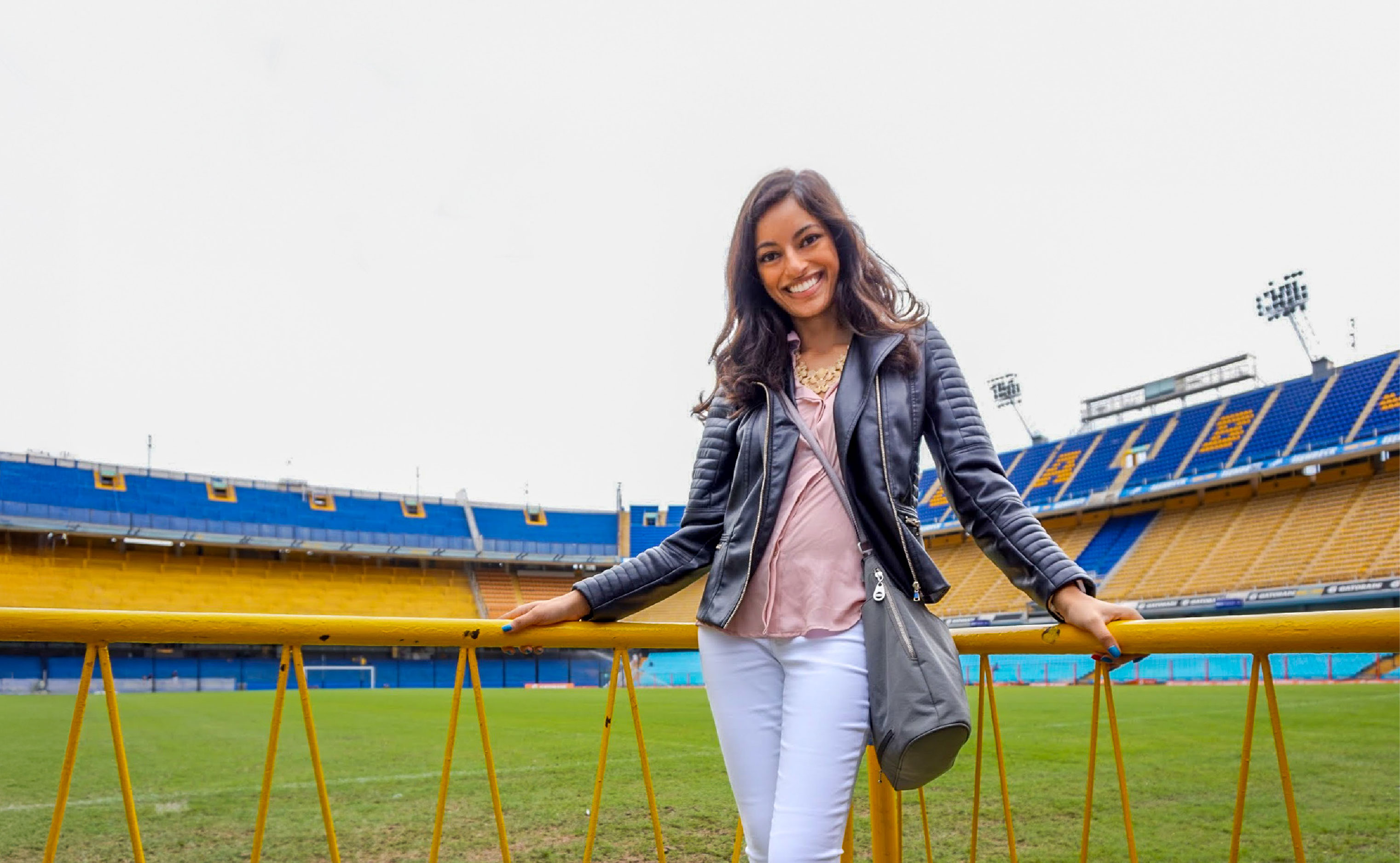
Current Role: Senior Manager of Environmental Sustainability, Nordstrom
Hometown: Seattle, Washington
Major: Economics
For Rima Mehta ’17, being an NYU Shanghai student meant becoming comfortable with adapting to any situation in a global context. Since graduating, Mehta’s career has taken her from the food and beverage industry to the retail sector, but always with a focus on sustainability.
Now based in the San Francisco Bay Area working for Nordstrom, Mehta shares how she’s paved a career path in environmental sustainability.
Why did you choose NYU Shanghai?
I was intending to apply to NYU. There was a checkbox that asked ‘would you like to be considered (for NYU Shanghai)?’ And I said, “sure why not?” And then, when I was accepted, it was the first college acceptance to come in. I went to an admitted student weekend in New York, and it was amazing. I met the other students, and that's what really convinced me to go. I thought I would probably always regret not getting a chance to study with those great people. I made great friends, and I was very impressed by them. I just wanted to stick around with that impressive and global cohort.

Which courses or professors have had a long-lasting impact on you?
One of the things that I really loved was taking NYU President Emeritus John Sexton's class– it is sort of a famous class on religion and constitutional law. The class taught me how to deconstruct an argument and assess the weight of an argument on its merits rather than allowing my own biases in. And to be aware of when my own biases entered a discourse. It just brought me to the next level in terms of not only debate, but also the ability to have any kind of conversation with anyone.

What did your study abroad experiences teach you?
There's so much value in being a chameleon– just being able to go somewhere and make friends and see what comes to you. If you can just try to blend in, try to be a part of what's going on in normal life, then there's so many opportunities that all perfectly present themselves to you. You’re going to make friends, find new jobs and internships. You might find a hobby that you're really into. We made so many great friends along the way. I have always been a big fan of learning new languages too. I always felt like that was kind of key to making friends and connecting with people.

What does your day-to-day look like at your job at Nordstrom?
I lead our environmental sustainability team-that typically includes climate, waste, water, and “nature.” A typical day is very cross-functional. The environment department is the center box for expertise, but also essentially consultants within Nordstrom. It's really guiding the ESG strategy for the company, setting goals for the company, and then working with every possible team to make that happen.
So if it's climate, setting a science based target for climate change by 2030 and then working with transportation to know what they need to do to get their facilities. How do we decarbonize our facilities and use better energy? And then there's customer-facing stuff– let's think about the different things that we can offer in store that improve the customer experience and are more sustainable. For example, beauty packaging. We had customers telling us they hate throwing away beauty packaging [because] it's not going to get recycled. So we developed a program to take it back in store. These are the kinds of things that I might do.
What initially drew you to sustainability?
In that first semester of undergrad– we had the highest heat, lowest cold, worst pollution (in Shanghai)—and it affects human health, it affects our lives and unfettered growth, leaves us all vulnerable to so many challenges. So it's wanting to make the world a nicer place to live and improve human well-being. I saw that economic growth happen in Shanghai. I saw the change occurring so quickly. That first semester underscored the importance of thinking differently about these things as we go into this century.
Tell us about the path you took after graduation that led you to your current role?
My first role was at Starbucks in what was then called global social impact and public policy. Starbucks was huge already, but the sustainability and social impact team was still very small. There were just three of us. I got to work on so much: packaging sustainability, ethical sourcing of things like coffee and cocoa, and public policy.
So when Hurricane Maria hit Puerto Rico, we were able to do a grant and work with the USDA to repopulate the island with native coffee trees. At the time I was only 23 years old– I had amazing colleagues there, and they gave me the opportunity to try such a wide variety of projects at the company. I rewrote a global human rights policy for the company, and it was really special. I was lucky to land a job somewhere where I could do a lot.
After that, I went to a non-profit called Bloedel Reserve, a forest and botanical garden reserve, where I worked on horticultural sustainability. After that, I went to graduate school in Switzerland at the University of Basel, where I studied sustainable development.
Where do you see yourself in 10 years?
I hope I'm still in this field. I love working in sustainability. I think that the private sector has a huge mandate to work on this, because the private sector is a large polluter of emissions, of waste. That's why I chose the private sector– I knew I could get some stuff done here. I hope I'm trying a new industry. I like to move around. So if it's apparel and retail now, I hope I get to try something else and experience what that is like.
What advice do you have for current students (or maybe your younger self)?
I got very ill in my early 20s and I still live with autoimmune disease and chronic illness. It changed my path. In that moment, I was so discouraged. I lost confidence. I really thought, “I’m so behind my peers.” I wish all students, especially young people who are struggling or there's some barrier that's making it hard– understand that number one, it's okay, you're not behind. Everyone has a different path and it's not going to be linear and that's totally okay. Live with it, go with it, show up authentically and the stuff that needs to find you will find you.
Don't put so much pressure on yourself. Enjoy college. It's a special moment. It's a protected moment in a way where you have this opportunity to be with your colleagues, be with your professors, to be in Shanghai. I would give anything to go back and have an hour with my peers, to get to just be with them and be in Shanghai again together, all of us. Enjoy this moment. You'll have years to worry about your resume and what’s next. This is special. And this is not replaceable.

